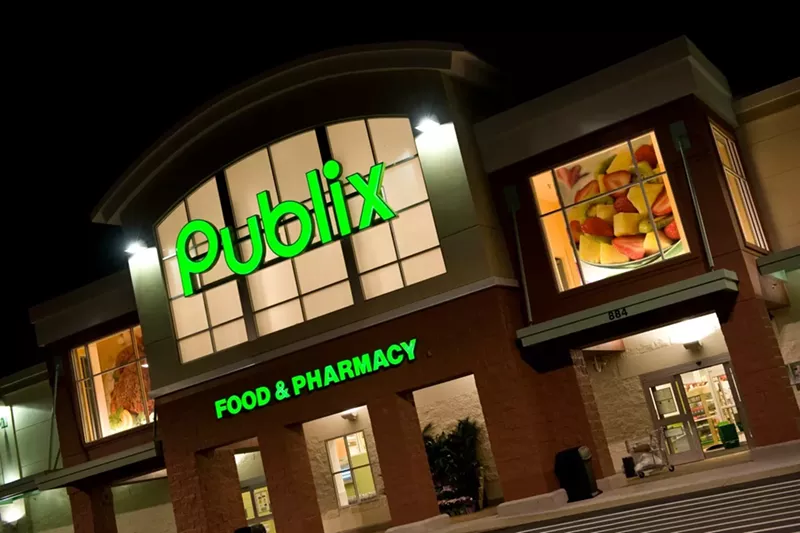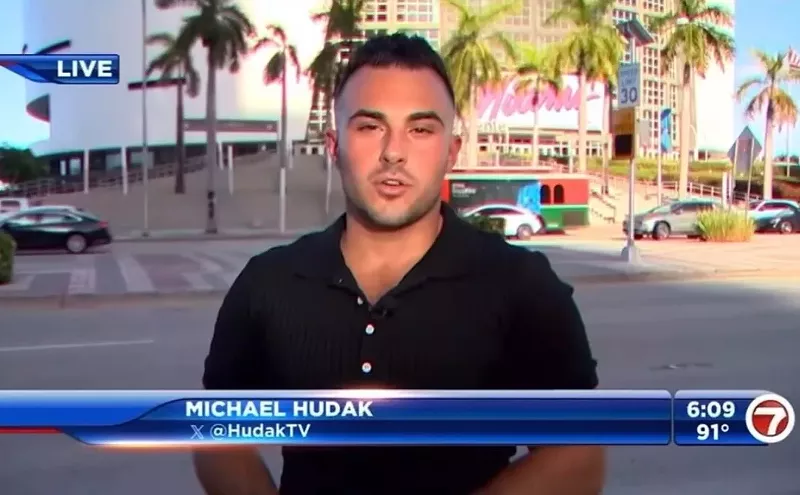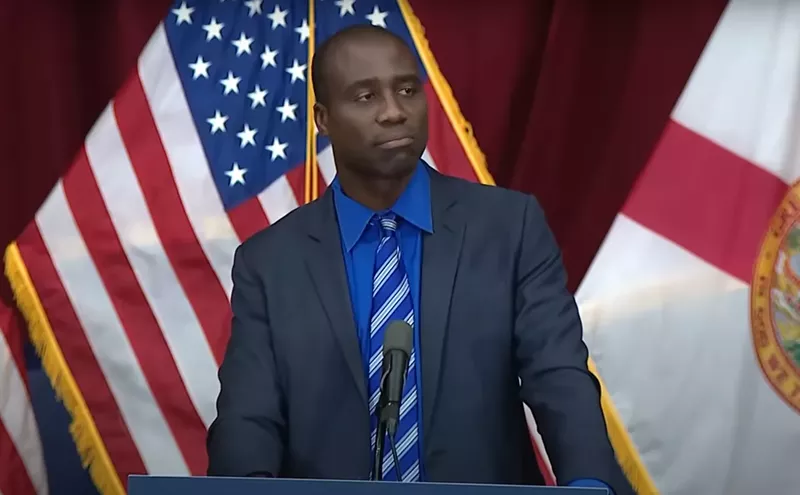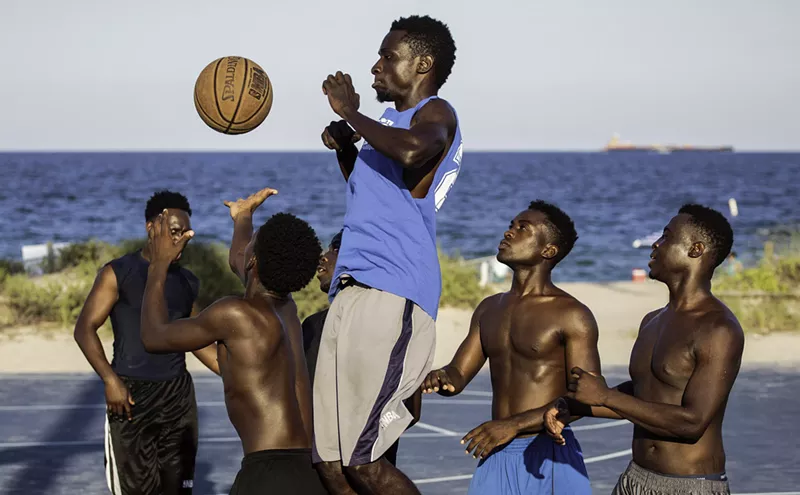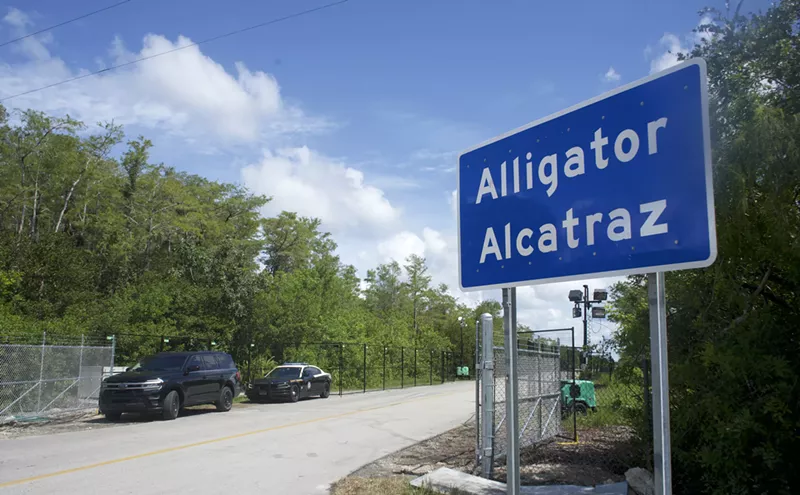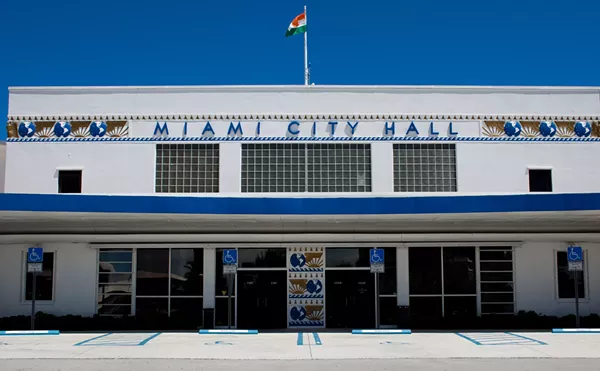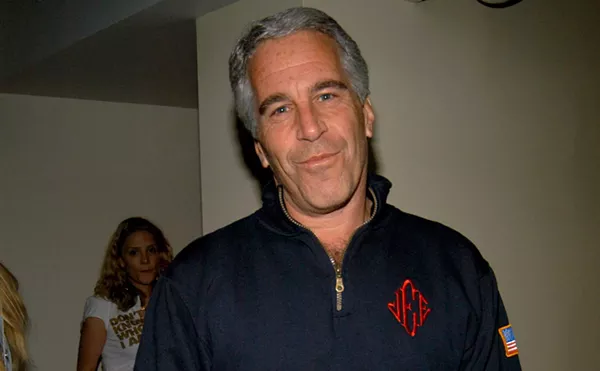In light of the conservative leanings of the company's founding family and its board, some critics are asking whether Publix has any business reason for denying "pre-exposure prophylaxis," or PrEP, drugs (known by the brand name Truvada) to its workers or if the company simply objects to the fact that the drugs are recommended for use by gay men, who are at higher risk for HIV transmission.
According to both Robers and TheBody.com, Publix employees who have asked the chain to cover the medications — which prevent HIV transmission — have routinely been denied. Robbins published denial letters from Publix human resources, which said employees can receive HIV medications only after they've contracted the virus.
Denying access to the drugs is apparently pretty rare. One activist working at the Fulton County PrEP Clinic in Atlanta told TheBody.com he's encountered only one company that denies PrEP applications: Publix..@CarlosdelRio7 3rd & Final Denial to someone... @Publix is using outdated standards or they don't care. They suggest a civil lawsuit? Weird pic.twitter.com/OHmuT9wFLg
— Josh Robbins (@imstilljosh) November 2, 2016
"We’ve started over 400 people on PrEP at our clinic alone, and this is the only person that we weren’t able to get PrEP for,” activist David Holland told the site.
Advocates in the HIV-positive community have begun comparing the Fortune 100 grocery chain — which is regularly ranked as one of the best places to work in numerous online lists, as well as the most valuable brand in Florida — to Hobby Lobby, the craft-supply store that refused to provide workers with birth-control medicine because its owners are hard-core Christians who reject the concept of contraception. (In July, Publix was also sued in Miami-Dade County for allegedly belittling and firing a man after learning that he had HIV.)
Publix officials did not immediately respond to New Times' requests for information today. But in statements to TheBody.com, officials danced around explaining why employees' Truvada applications have been denied.
"Annually, we evaluate benefits covered under our health plans," Publix spokesperson Brenda Reid told the site. "There are numerous medications covered by the plan used in the treatment of HIV. There are some medications that have coverage limitations or require prior authorization. Any Publix associate with questions regarding his or her coverage can contact our benefits department directly."
Critics have also noted that the decision looks even worse when you factor in where Publix is headquartered: According to the U.S. Centers for Disease Control and Prevention, Florida had the third-highest rate of HIV transmission in America in 2016. (Georgia, another state with a huge number of Publix locations, ranked first overall.) Florida tops the nation when it comes to AIDS-related deaths, and Miami is one of the nation's top HIV-transmission hot spots.
Gay men remain likelier to contract HIV due to a number of factors, including the fact that the virus is more easily transmitted through anal sex. Doctors have recommended PrEP drugs to help curtail HIV transmission — but the drugs remain controversial even within the LGBTQ community because some critics argue the drugs incentivize men to engage in riskier forms of sex. (Others argue this position is effectively a form of anti-gay slut-shaming.)
Publix's aversion to PrEP is not the first time the chain has been accused of anti-gay leanings. The company has long refused to participate in the Workplace Equality Guide — a program run by the Human Rights Campaign (HRC), one of the nation's most prominent LGBTQ activist groups — despite the fact that nearly every other Fortune 100 company does so. The survey measures a given corporation's tolerance for LGBTQ people: Because Publix has repeatedly refused to even fill out surveys and participate in the program, the HRC has awarded Publix a big fat "zero" rating. Publix representatives have previously told New Times that the company simply "does not participate in surveys," which LGBTQ activists say is bullshit.
New Times has noted that numerous gay Publix employees have reported discrimination while working for the company. The LGBTQ-rights group Equality Florida said in 2013 that it had received multiple complaints from Publix workers. One employee, who asked to remain anonymous for fear he'd be fired, said the chain refused to offer him bereavement pay after his partner of 33 years died.
"They said it wasn't a law in the state of Florida that we could be married, so I couldn't get bereavement leave," the employee said. "That's flat-out discrimination. It wasn't the money that I needed. It was the principle of the thing." (Publix "enhanced" its bereavement policy January 1, 2014, possibly because of public criticism.)
In September 2012, a Broward County Publix employee was awarded $100,000 after county officials ruled that Publix fired him simply for being gay.
Progressive critics have found other reasons to target Publix. Despite the fact that 80 percent of female farmworkers report experiencing rape or sexual harassment, the chain has refused to join the Fair Food Program, a national partnership known for reducing the incidence of sexual misconduct on farms. Publix's own neighbors — the Coalition of Immokalee Farmworkers near Naples — run the program, and the chain's competitors, including McDonald's and Walmart, have signed up. Members of the coalition say Publix won't even speak to them.
The chain has also been accused of using its power to influence state and local politics: After the City of Miami Beach tried to raise its minimum wage to $13.31 per hour in 2106, the Florida Retail Coalition — a trade group heavily influenced by Publix board members — sued the city to prevent local stores from paying workers a fair wage.
The supermarket giant has spent more than $1 million lobbying state lawmakers to allow companies to continue using polystyrene even though the material pollutes the ocean and local waterways. Carol Jenkins Barnett, daughter of company founder George Jenkins, has donated heavily to campaigns aimed at keeping medical marijuana illegal. And multiple Publix board members have a long history of donating money to conservative candidates who want to strip away workers' rights.
Publix might have legal cover in its Truvada policy. The U.S. Supreme Court ruled in the 2014 Burwell v. Hobby Lobby case that corporations are, technically, allowed to deny coverage for things such as contraception if they voice religious concerns about the medical procedure. Labor and civil rights groups say the ruling opens the door for employers to use the First Amendment to discriminate against employees. The Supreme Court is now debating whether the First Amendment allowed a Colorado baker to refuse to make a cake for a gay wedding in 2012.

